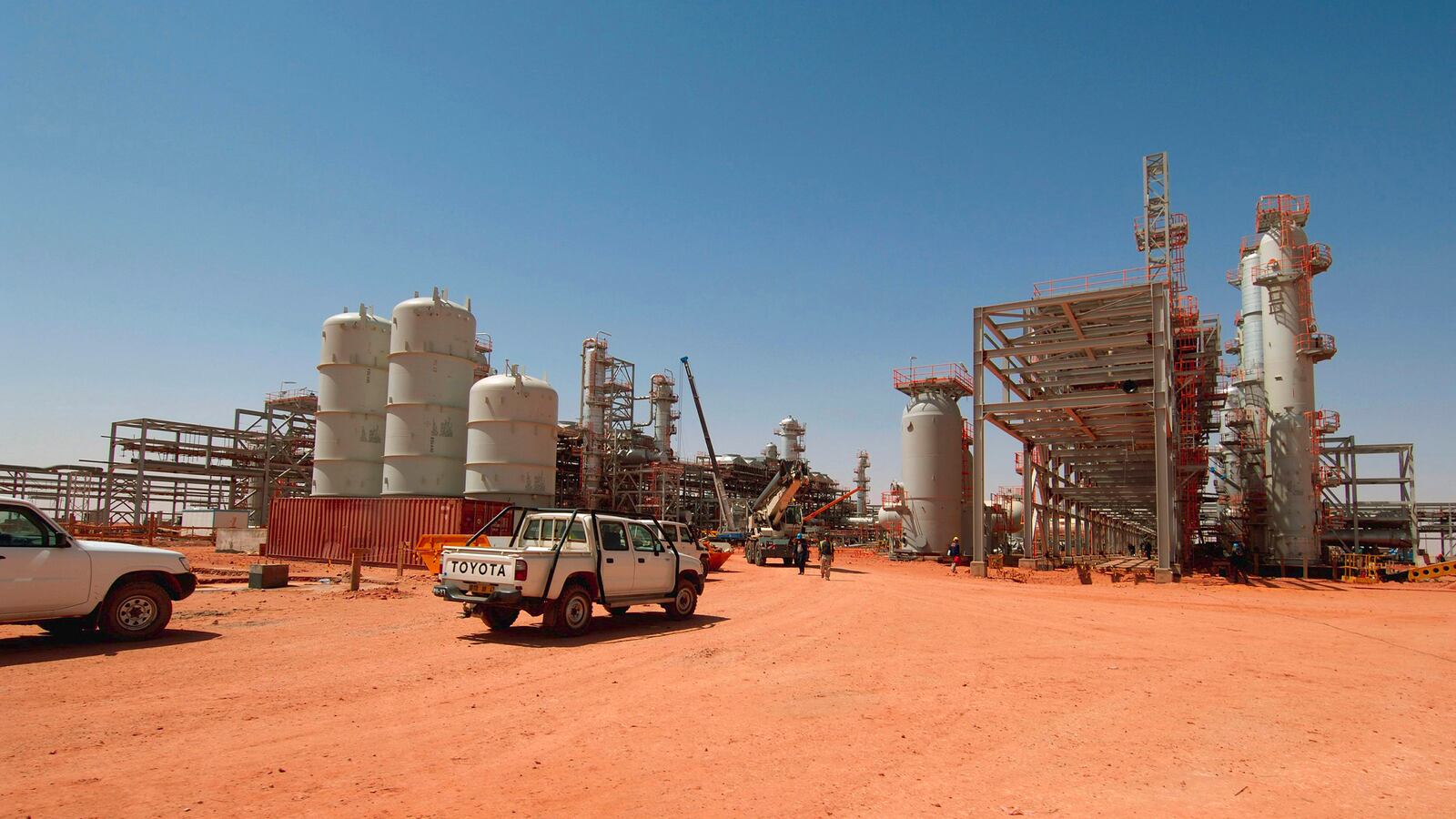As French troops step up their air campaign against Islamist rebels in Mali, a new kidnapping is intensifying fears that jihadists affiliated with al Qaeda in the Islamic Maghreb have already penetrated parts of the vast Sahara Desert.

At least seven Americans were among the 41 foreign nationals taken hostage Wednesday at the In Amenas gas field in the remote province of Illizi, Algerian state media reported, citing unnamed rebel leaders. A group known as Katibat Moulathamine—or the Masked Brigade, an offshoot of al Qaeda in the Islamic Maghreb—reportedly contacted the Mauritanian news outlet ANI and claimed responsibility for the attack.
State Department spokeswoman Victoria Nuland confirmed on Wednesday that Americans are among the captives but declined to give further details in an effort to protect their lives. “By all indications, this is a terrorist act,” said Defense Secretary Leon Panetta at a meeting with Italian government officials in Rome.
Algerian officials said the attackers threatened to blow up the site and kill the foreigners if their demands were not met. Japanese, British, Norwegian, and French nationals were among the kidnapped, and at least one Briton has been killed, according to state media. Some 300 Algerian workers also were captured but have since been released, according to the state-run Algérie Presse Service.
Algeria “will not meet the demands of terrorists and refuses any negotiation,” Interior Minister Daho Ould Kablia said in a nationally televised address.
Just over Algeria’s southern border, French and Malian troops have been targeting Islamist positions in northern Mali since Jan. 11, attempting to win back territory seized by rebels in April. Turmoil in Mali has intensified in recent years, after a handful of militant groups linking themselves to the National Movement for the Liberation of Azawad, an ethnic nationalist group linked to the Tuareg tribe, made considerable gains against the government following a short-lived coup. Amid the confusion and chaos, the MNLA declared the independence of three of Mali’s northern regions, considered the Tuareg homeland, and declared sharia the official law of the land.
According to local reports, the militants have sent child soldiers to reinforce their positions in northern Mali, as well as using the local population as human shields from the French-Malian raids.
“The situation in Mali is in part driven by poverty and extremism, but also by weapons flows from Libya,” said Paul Sullivan, a North Africa expert and professor at the National Defense University. “The Tuareg and others who fought in Libya and then moved back to Mali are a hardened bunch and fairly well-trained. The Algerian government warned the French that it may spill over. It has.”
While Algeria has refused to take part in military action against Mali or any other foreign nation, it has taken precautions to protect its vast border with Mali, sending troops to guard against any cross-border incursions. Al Qaeda in the Islamic Maghreb, the North African affiliate of the terrorist network, initially emerged as a radical opposition group in the days of the Algerian civil war of the 1990s but has since expanded its foothold in Mali’s vast ungoverned northern region. Its initial goal was to overthrow Algeria’s government and establish an Islamic state, but experts say its regional ambitions have since expanded to target much of North Africa, as well as Europe and the United States.
“AQIM exists in Algeria and in Libya,” said Sullivan. “They are looking for a safe zone. Mali looks most likely. Libya is pretty much the Wild West in the desert regions. Huge swaths of Algeria are open desert. The borders are porous.”
“The Obama administration needs to have a clear and focused policy on eliminating the threats that diverse, al Qaeda-affiliated groups pose to the United States and to Americans working abroad off of the usual battlefields,” said Rep. Mike Rogers, the Republican chairman of the House Permanent Select Committee on Intelligence.
The report in Mauritania’s ANI links Wednesday’s attack to Mokhtar Belmokhtar, the Algerian-born radical jihadist who has been linked to some of the most dramatic and high-profile kidnappings of the past decade. In 2002, French intelligence called him “uncatchable.” In 2008, Algerian media reported that Belmokhtar and 15 of his men had surrendered to authorities, a claim later disputed by the group. Belmokhtar, who lost an eye in combat, also has been reported dead on more than one occasion. Experts on jihad note that Belmokhtar maintains allies in the Malian government and has won the support of various extremist elements in the region.
“Algeria is also home to Tuaregs, and any fire erupting in one corner of the Sahara involving a Tuareg tribe could ignite a reaction elsewhere,” said Arezki Daoud, an Algerian political analyst and editor of the North Africa Journal. “This is dream come true for al Qaeda. They want that regional instability.”
The In Amenas field is a joint venture of the Algerian national oil company Sonatrach, BP, and Statoil. In a statement on its website Wednesday, BP said that “contact with the site is extremely difficult, but we understand that armed individuals are still occupying the In Amenas operations site,” adding that there is no confirmed information available on the status of the workers.
—With reporting from Eli Lake






